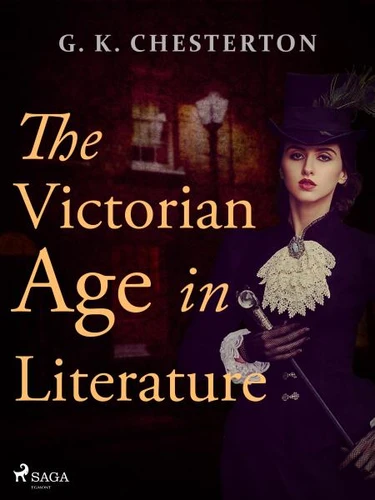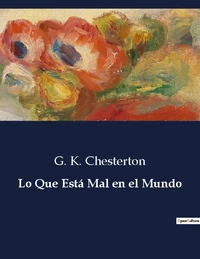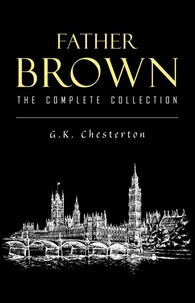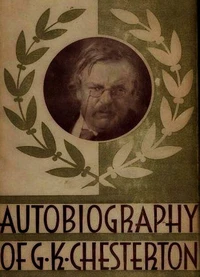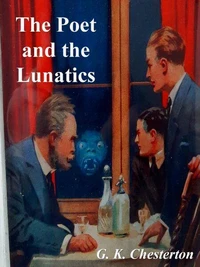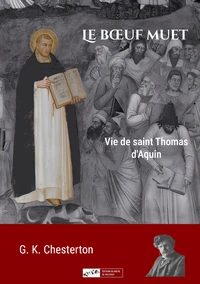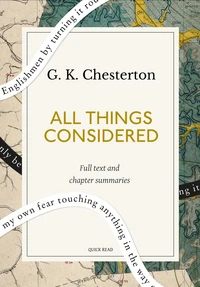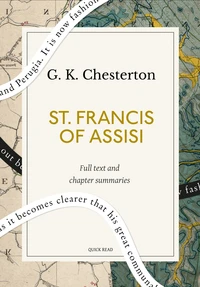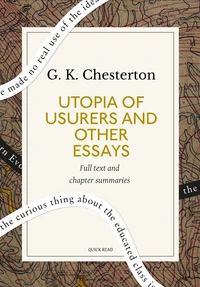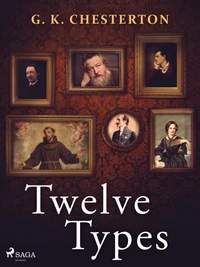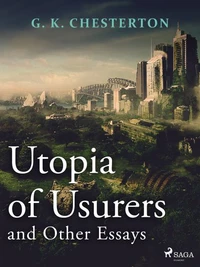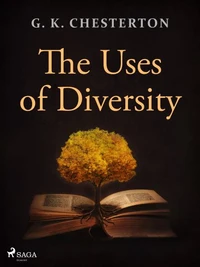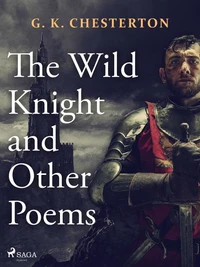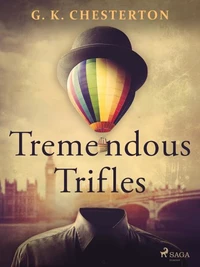The Victorian Age in Literature
Par :Formats :
Disponible dans votre compte client Decitre ou Furet du Nord dès validation de votre commande. Le format ePub est :
- Compatible avec une lecture sur My Vivlio (smartphone, tablette, ordinateur)
- Compatible avec une lecture sur liseuses Vivlio
- Pour les liseuses autres que Vivlio, vous devez utiliser le logiciel Adobe Digital Edition. Non compatible avec la lecture sur les liseuses Kindle, Remarkable et Sony
 , qui est-ce ?
, qui est-ce ?Notre partenaire de plateforme de lecture numérique où vous retrouverez l'ensemble de vos ebooks gratuitement
Pour en savoir plus sur nos ebooks, consultez notre aide en ligne ici
- Nombre de pages100
- FormatePub
- ISBN978-87-26-99256-4
- EAN9788726992564
- Date de parution13/12/2022
- Protection num.Digital Watermarking
- Taille297 Ko
- Infos supplémentairesepub
- ÉditeurSAGA Egmont
Résumé
Most books of literary criticism are written long after their age has passed, but a rare few are written during their time - and G. K. Chesterton's 'The Victorian Age in Literature' is one of them.
Born during the Victorian era, Chesterton gives an incredible insight into Victorian literature as it was perceived at the end of the 19th century. His witty accounts shine a light on the classic works of Dickens, Austen, and the Brontës, as well as leading poets of the period, from Tennyson to Browning.
His discussion ranges from the politics of the day to the birth of radical philosophies and revelations within the sciences. Chesterton's work is a refreshingly personal look into the Victorian mind and an invaluable resource for any student of literary history. Gilbert Keith Chesterton (1874 - 1936) was an English writer, journalist, philosopher, and literary critic. An unparalleled essayist, he produced over four thousand essays during his lifetime, alongside eighty novels and two hundred short stories.
Tackling topics of politics, history, philosophy, and theology with tenacious wit and humour, G. K. Chesterton was often considered a master of the paradox. Himself both a modernist and devout Catholic, he is remembered best for his priest-detective short stories 'Father Brown', and his metaphysical thriller 'The Man Who Was Thursday'. In his lifetime, Chesterton befriended and debated some of the greatest thinkers of the age, such as George Bernard Shore, H.
G. Wells, and Bertrand Russell, while his works went on to inspire figures including T. S. Eliot, Michael Collins, and Mahatma Gandhi.
His discussion ranges from the politics of the day to the birth of radical philosophies and revelations within the sciences. Chesterton's work is a refreshingly personal look into the Victorian mind and an invaluable resource for any student of literary history. Gilbert Keith Chesterton (1874 - 1936) was an English writer, journalist, philosopher, and literary critic. An unparalleled essayist, he produced over four thousand essays during his lifetime, alongside eighty novels and two hundred short stories.
Tackling topics of politics, history, philosophy, and theology with tenacious wit and humour, G. K. Chesterton was often considered a master of the paradox. Himself both a modernist and devout Catholic, he is remembered best for his priest-detective short stories 'Father Brown', and his metaphysical thriller 'The Man Who Was Thursday'. In his lifetime, Chesterton befriended and debated some of the greatest thinkers of the age, such as George Bernard Shore, H.
G. Wells, and Bertrand Russell, while his works went on to inspire figures including T. S. Eliot, Michael Collins, and Mahatma Gandhi.
Most books of literary criticism are written long after their age has passed, but a rare few are written during their time - and G. K. Chesterton's 'The Victorian Age in Literature' is one of them.
Born during the Victorian era, Chesterton gives an incredible insight into Victorian literature as it was perceived at the end of the 19th century. His witty accounts shine a light on the classic works of Dickens, Austen, and the Brontës, as well as leading poets of the period, from Tennyson to Browning.
His discussion ranges from the politics of the day to the birth of radical philosophies and revelations within the sciences. Chesterton's work is a refreshingly personal look into the Victorian mind and an invaluable resource for any student of literary history. Gilbert Keith Chesterton (1874 - 1936) was an English writer, journalist, philosopher, and literary critic. An unparalleled essayist, he produced over four thousand essays during his lifetime, alongside eighty novels and two hundred short stories.
Tackling topics of politics, history, philosophy, and theology with tenacious wit and humour, G. K. Chesterton was often considered a master of the paradox. Himself both a modernist and devout Catholic, he is remembered best for his priest-detective short stories 'Father Brown', and his metaphysical thriller 'The Man Who Was Thursday'. In his lifetime, Chesterton befriended and debated some of the greatest thinkers of the age, such as George Bernard Shore, H.
G. Wells, and Bertrand Russell, while his works went on to inspire figures including T. S. Eliot, Michael Collins, and Mahatma Gandhi.
His discussion ranges from the politics of the day to the birth of radical philosophies and revelations within the sciences. Chesterton's work is a refreshingly personal look into the Victorian mind and an invaluable resource for any student of literary history. Gilbert Keith Chesterton (1874 - 1936) was an English writer, journalist, philosopher, and literary critic. An unparalleled essayist, he produced over four thousand essays during his lifetime, alongside eighty novels and two hundred short stories.
Tackling topics of politics, history, philosophy, and theology with tenacious wit and humour, G. K. Chesterton was often considered a master of the paradox. Himself both a modernist and devout Catholic, he is remembered best for his priest-detective short stories 'Father Brown', and his metaphysical thriller 'The Man Who Was Thursday'. In his lifetime, Chesterton befriended and debated some of the greatest thinkers of the age, such as George Bernard Shore, H.
G. Wells, and Bertrand Russell, while his works went on to inspire figures including T. S. Eliot, Michael Collins, and Mahatma Gandhi.

